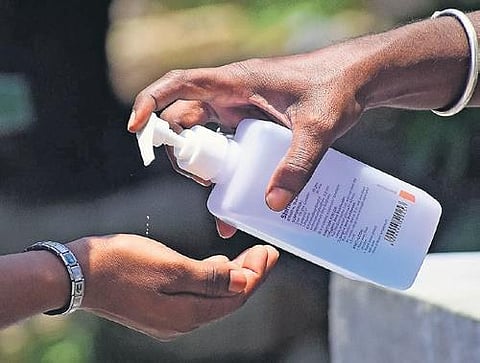

BENGALURU: The Union Health Ministry’s revised policy for Covid-19 patients has sparked off a debate amongst epidemiologists and medical experts in the country. While some feel the ministry’s move to discharge mild, very mild and moderate symptomatic patients without PCR or RT-PCR tests conducted to detect the presence of pathogens in the body is good as it will then lessen the burden on health workers, others opine that this can be ‘unsafe’ as testing is the only way to know if patients are positive or not.
The new guidelines have been issued at a time when the number of cases in the country neared the 60,000 mark According to a senior epidemiologist who is also part of ICMR, “the guidelines are revised on regular basis, definitely based on studies and clinical reports available from other countries and also by the guidelines set by the Center for Disease Control and Prevention, the top health body in the US.” The guidelines state, “Very mild, mild and pre-symptomatic cases can be discharged after 10 days of symptom onset and no fever for three days.” It adds that “no test is required before discharge from Covid-19 care centres.” Earlier, the patient had to test negative twice before being discharged.
However, it must be noted that a vast number of patients in India so far have been asymptomatic, which means they show no symptoms of the illness. Even in Karnataka, nearly 80 per cent of the patients who have tested positive have been asymptomatic. Dr John Jacob, renowned virologist with CMC, Vellore, welcomed the Centre’s move and said this announcement shows that the government is now trying to change its testing strategy and also is trying to save the testing kits and also not fill up the hospitals with mild or asymptomatic patients.
“They are going by the clinical symptoms. If you don’t have fever, it makes sense to keep you in the hospital for 10 days and look for symptoms. If it doesn’t show up, then you are good to go. In cases where oxygen is needed, they are again looking at the clinical picture and treatment. There is no need for mild or asymptomatic patients to be in hospital, they can be quarantined at home,” he said. However, some epidemiologists expressed concern about the new policy. Dean of a government Covid-19 setup said, “It’s a good move as far as lessening the burden on healthcare workers is concerned. But what if the symptoms return after 10 days?”
Dr Giridhara R Babu, epidemiologist and member of ICMR, said, “The policy seems to be promoting discharge of asymptomatic/mild/moderate patients at an earlier date. This is probably done to use testing more efficiently and decongest the hospitals in case of surge in cases. However, from the public health point of view, one should be certain that the person is not shedding the virus, and therefore cannot infect others. Testing is the only way to know if someone continues to be infected or not. While discharge can be done, testing should not stop. In my view, testing and home isolation for such patients can be a better strategy.”